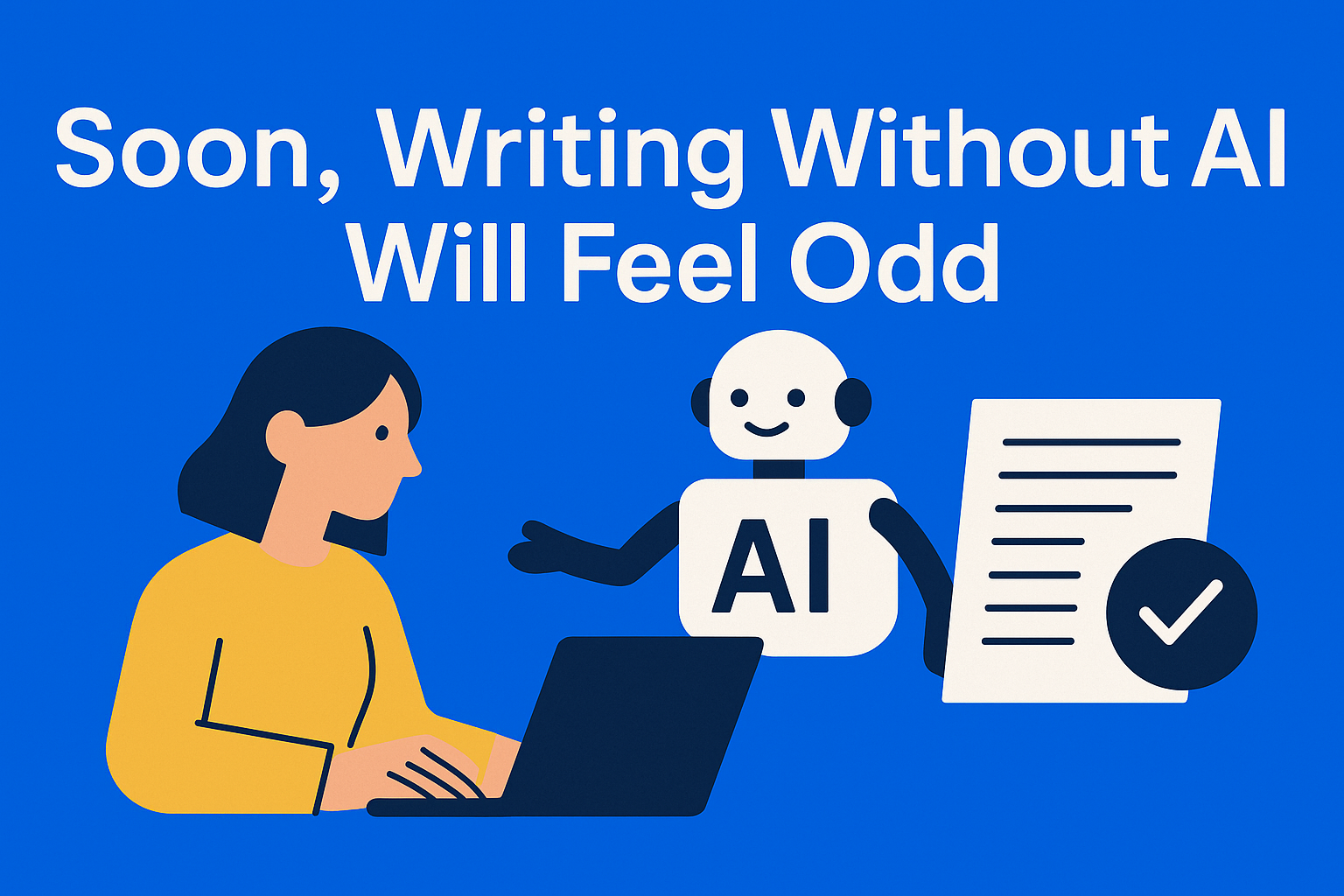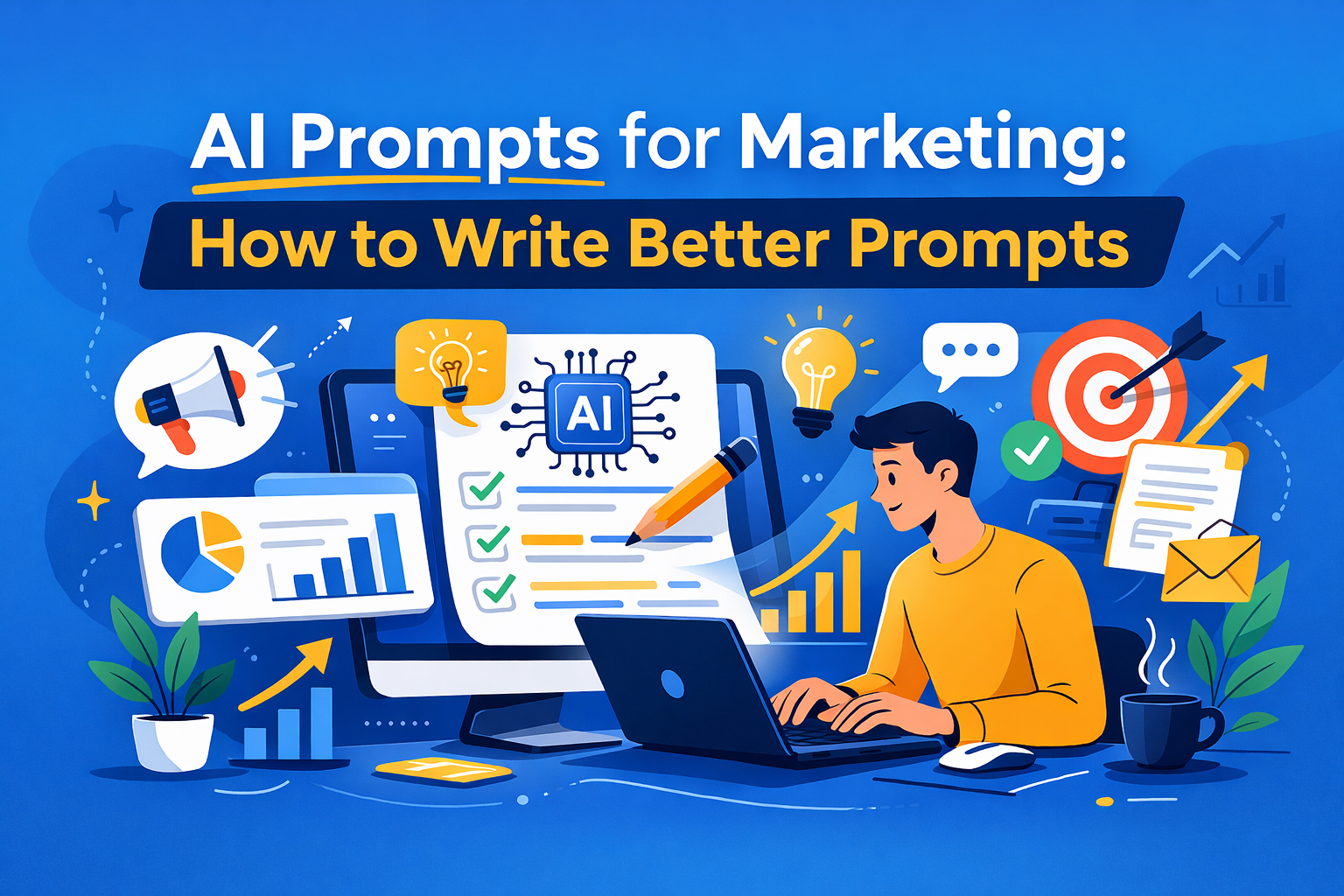In a Few Years, Writing Without AI Might Feel Like Writing Without Spellcheck
In a few years, writing without AI could feel as strange as writing without spellcheck. From Grammarly to advanced AI assistants, these tools are reshaping how we create content - boosting speed, clarity, and quality. But will they enhance creativity or replace human expression?

In the past, when we wrote texts, we had to read through the entire thing several times to make sure there were no typos or grammar mistakes. There was no spellcheck, no red underline to subtly warn us that something wasn’t written correctly. There was only the keyboard and patience. Today, that feels like a complete throwback to the Stone Age, because we’re used to technology doing that “boring part of the job” for us. Just as it’s almost unimaginable today to write without Grammarly or at least a basic spellcheck, it’s very likely that the same will apply to AI tools in the coming years. And that brings us to the key question - will using AI become not only common but something without which it’s hard to imagine the writing process itself?
Key Takeaways
- AI in writing is following the path of spellcheck - moving from a novelty to an invisible, everyday necessity.
- Spellcheck fixes errors, while AI assists with the entire writing process - from ideas and structure to tone and SEO.
- Future tools will be deeply integrated into all writing platforms, making AI help seamless and constant.
- Over-reliance could weaken independent writing skills - sparking debates over authenticity and authorship.
- Writers may evolve into editors of AI output - focusing on refinement and creative direction instead of producing every sentence from scratch.
How We Got Here - From Spellcheck to AI
Writing and technology have always advanced together, supporting each other. It started modestly - with the first spellcheck options in Word that helped us catch typos. Then came more advanced tools like Grammarly, which not only corrected spelling but also analyzed tone, style, and clarity of sentences, giving us suggestions on how to write more clearly and professionally. Today, we’ve stepped into the era of artificial intelligence, where AI goes much further: it can come up with ideas for a text, suggest the best structure, shorten or expand paragraphs, and even write an entire draft in just a few seconds - faster than we can type the first sentence.
Similarities Between Grammarly and AI
Both Grammarly and AI assistants (ChatGPT, Claude, Gemini, and others) work quietly in the background, almost unnoticed while we write, yet constantly monitoring our work and suggesting how we can improve it. They don’t just remove grammatical and stylistic imperfections - they also give us the confidence that the text we’re writing will be clean, clear, and error-free. This kind of help feels like having invisible “guardians” of our sentences, who take care of every period, comma, and phrasing. With this automated support, the writing process becomes faster, simpler, and higher quality, allowing us to focus on ideas and the message instead of technical details.
Differences - AI Goes Much Further
We can think of Grammarly as a specialist in corrections, while ChatGPT, for example, is a much broader collaborator in the entire writing process. Grammarly will catch and fix grammar mistakes or suggest better word choices, but AI can do much more: adapt the tone of a message for different audiences, optimize text for SEO to improve online visibility, and offer multiple different versions of an introduction or conclusion to choose from. In other words, AI isn’t just a tool that fixes what we’ve already written - it’s a partner that actively suggests ideas, contributes to the structure and style of the text, and helps us move from the initial sketch to a finished, high-quality piece of content.
What This Means for the Future of Writing
The use of AI will over time become something completely normal - it’s already part of everyday work, just like spellcheck. In fields like marketing, publishing, and business communication, it will be almost expected that every text goes through AI assistance - whether for corrections, optimization, or generating new ideas. Those who choose not to use this kind of help will often be slower, less productive, and will find it harder to compete with those who do. Just as no one today flips through dictionaries to look for spelling mistakes, in the near future no one will expect you to write entirely without the support of artificial intelligence.
Potential Controversies and Challenges
There are serious questions we’re increasingly asking: where exactly is the line between my work and AI’s work - when does the text stop being entirely mine? Could we, over time, lose the skill of writing independently if we rely too much on artificial intelligence? And one more important question - should we clearly label texts that were created with AI support so that readers know how much the tool contributed? We don’t yet have final answers to these questions, but one thing is certain - discussions about these topics will become more frequent and important in the coming years.
Looking Ahead - What It Might Look Like in 5-10 Years
It’s possible that in a few years AI will be integrated into every tool we write in - from Word and Google Docs to email clients and messaging platforms. It might not just be basic corrections, but advanced functions that blend seamlessly into our workflow. We could have personalized AI assistants trained on our writing style, recognizing our tone, favorite expressions, and sentence structure. Such an assistant would know how we want our text to sound and suggest changes that feel natural, as if proposed by a colleague who’s known us for years. In that scenario, people might more often take on the role of editor - the one who gives the final word, rather than the one who has to write everything from scratch.
Conclusion
Just as today we hardly even notice spellcheck running in the background, perhaps one day we won’t even think about using AI assistance - it will simply be there, always present. Still, an important question remains: will AI primarily be a tool that helps us express our ideas more quickly and easily, freeing up space for creativity, or could it become the final nail in the coffin of “pure” human writing, where every sentence comes solely from our own mind? This is a dilemma we don’t yet have a clear answer to, but one that’s worth thinking about as technology continues to advance.






